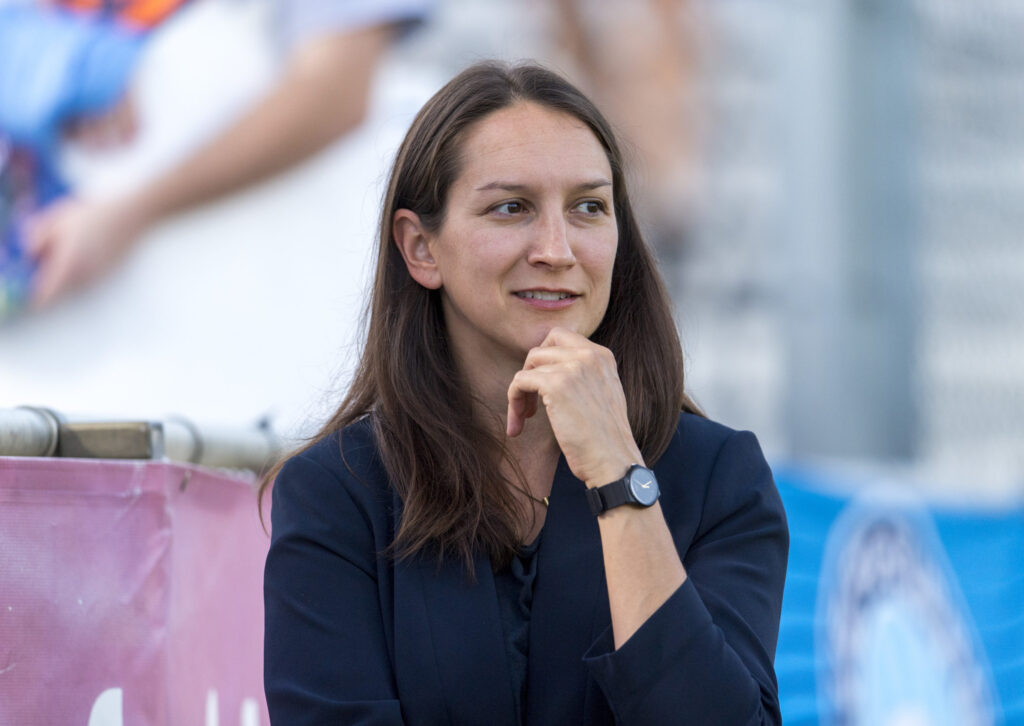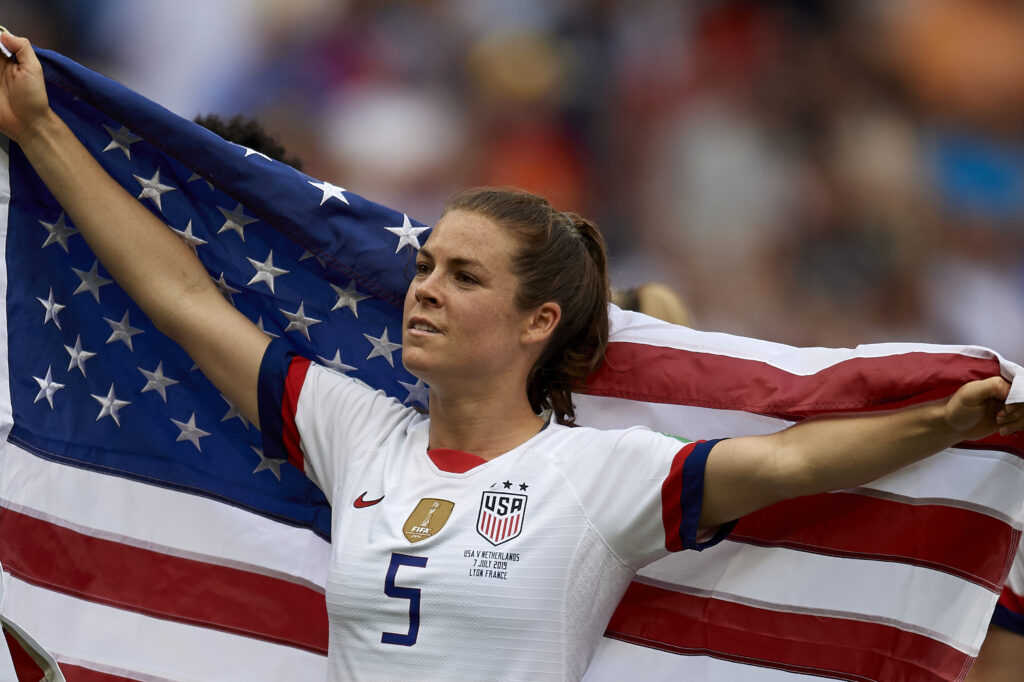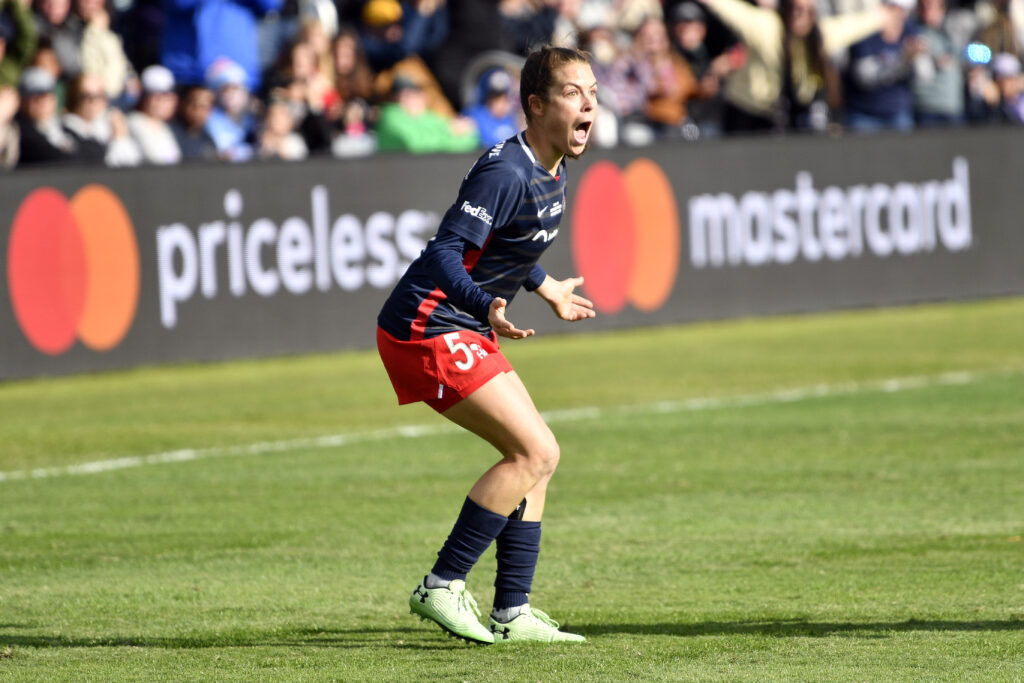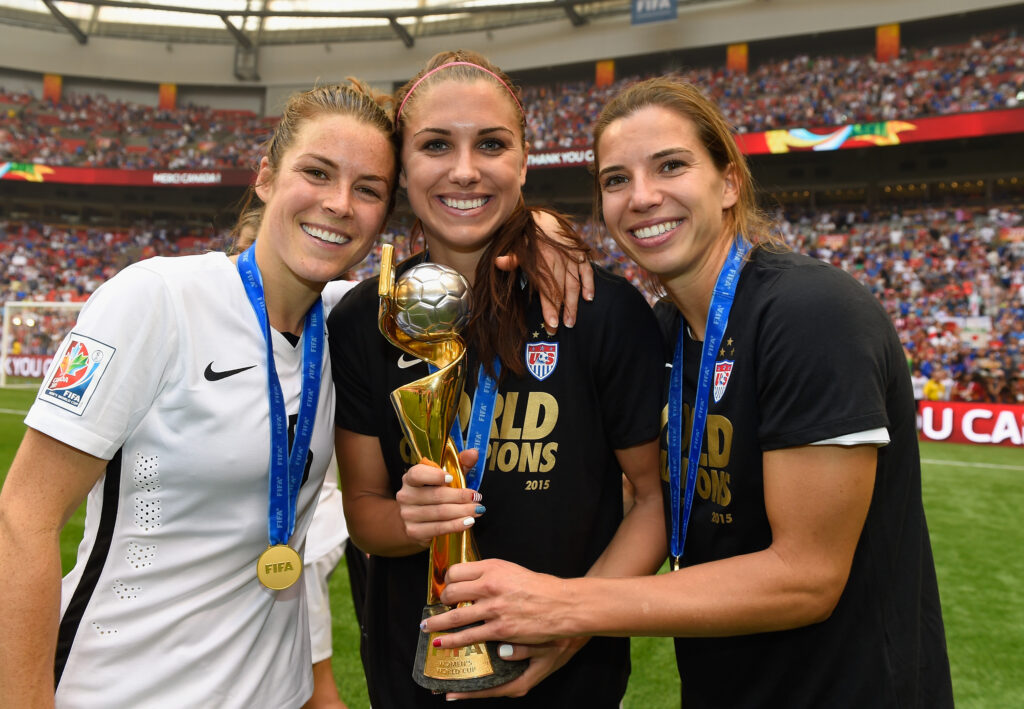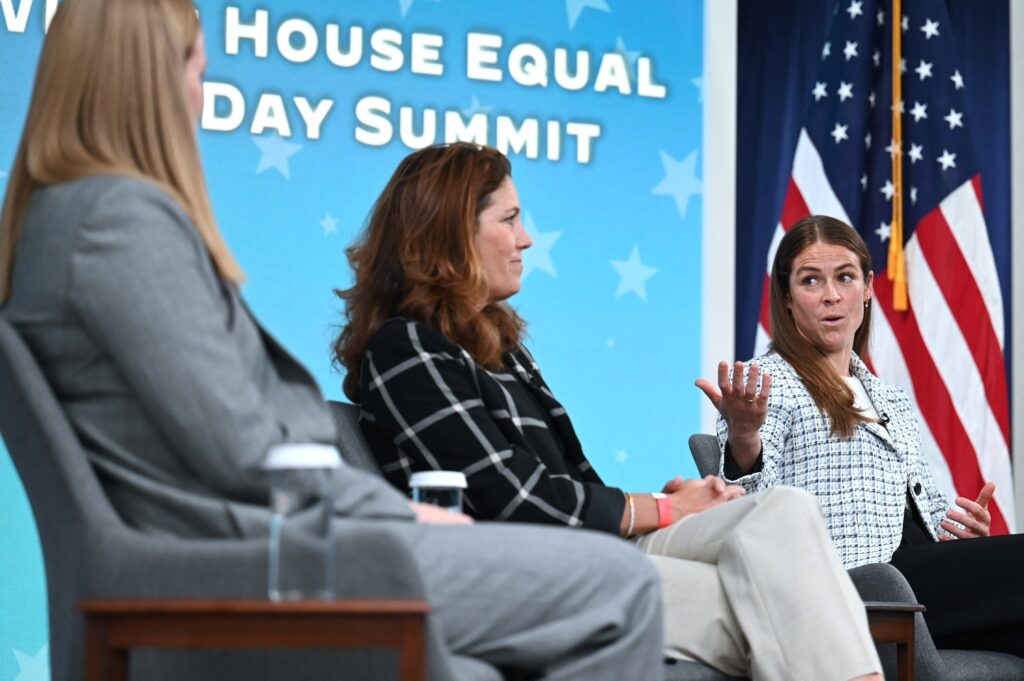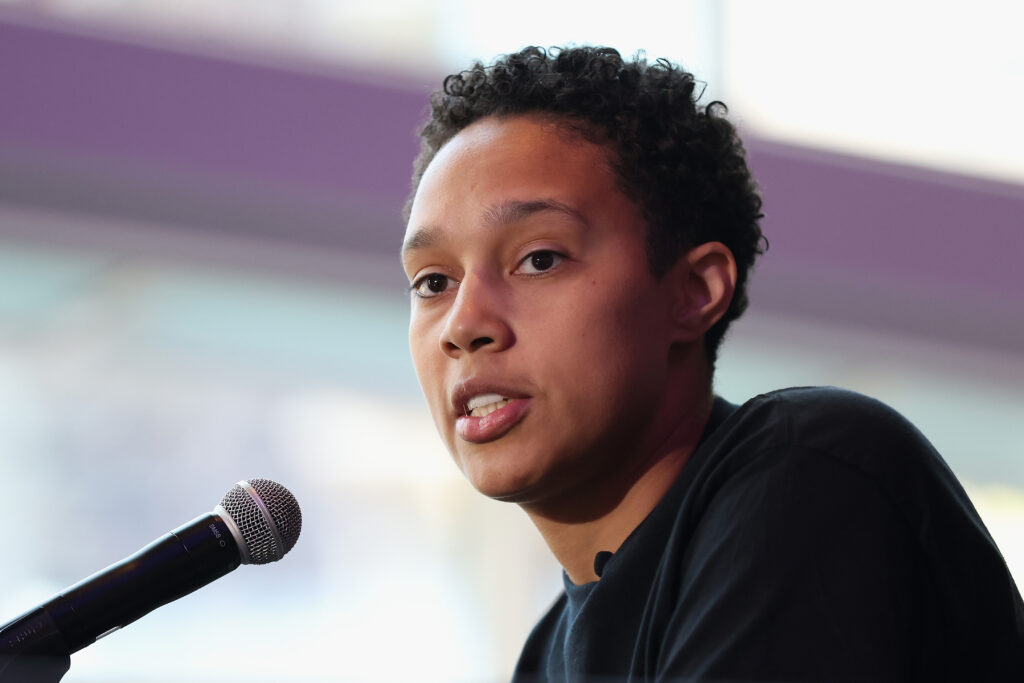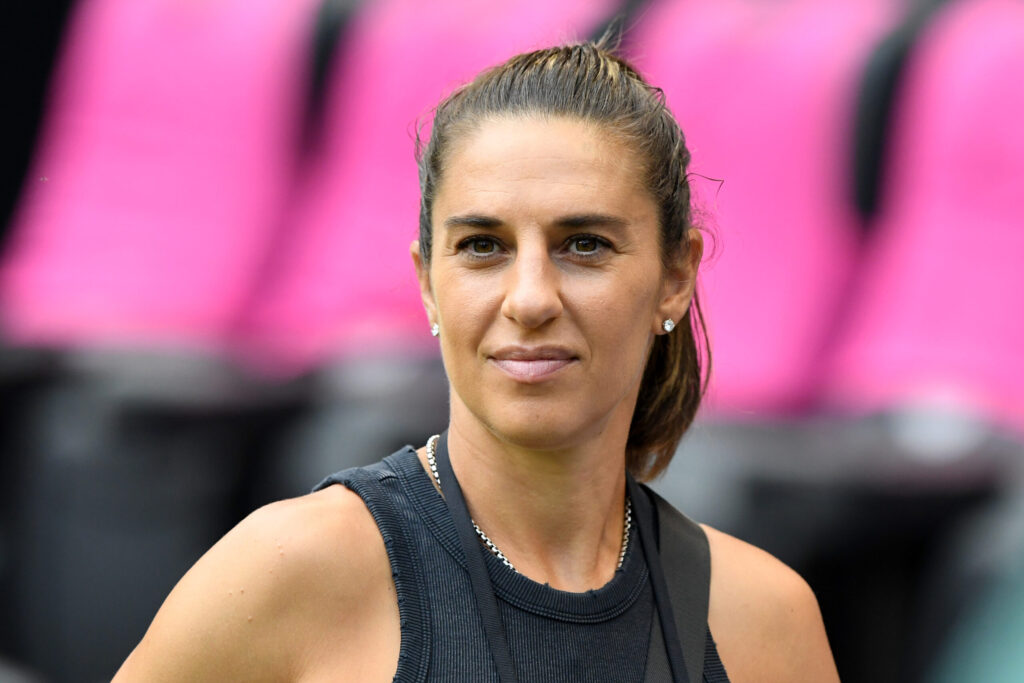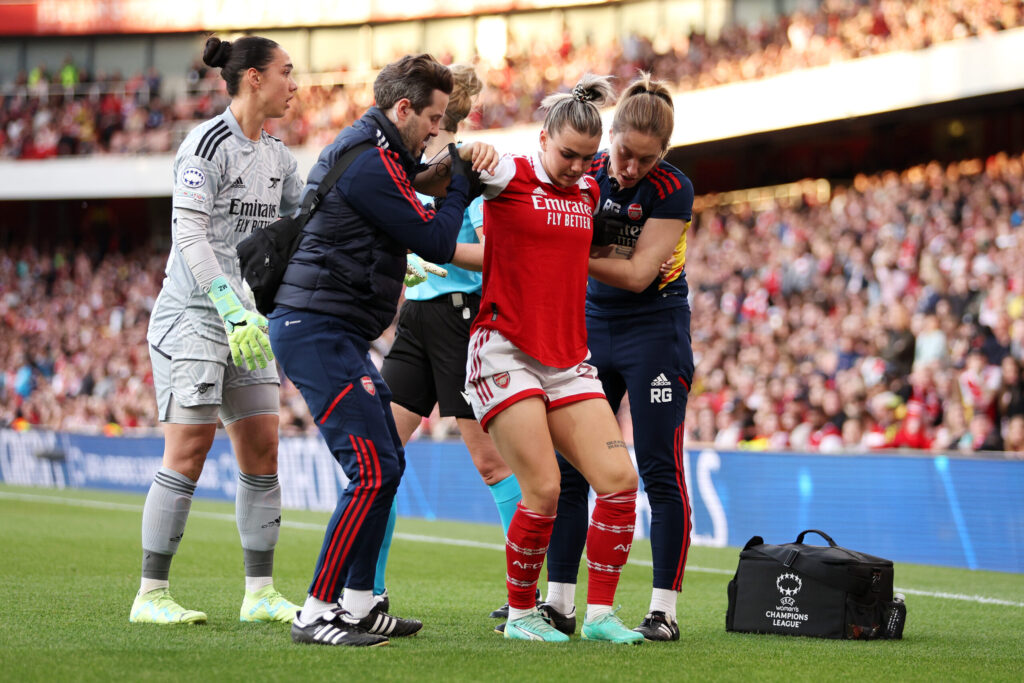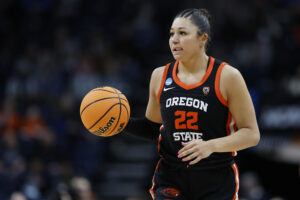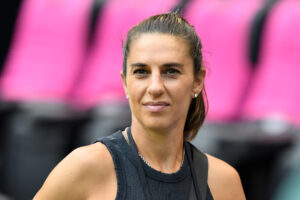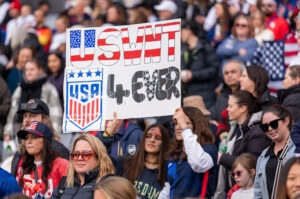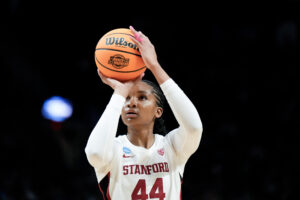Alyse LaHue is the general manager of Sky Blue FC of the NWSL. Widely credited with turning around a club that had fallen out of favor, LaHue spoke with Just Women’s Sports about how she managed to change the culture and what comes next for Sky Blue.
(Editor’s note: this conversation took place before the killing of George Floyd and the subsequent protests. Sky Blue FC released a statement on the issue here. For an earlier interview with LaHue about how Sky Blue was adjusting to the coronavirus, click here.)
A lot of women’s sports are marketed towards younger kids, but you make a point of trying to bring in millennials and adults. Can you talk a little bit about that?
We have a family friendly atmosphere within our games, and that’s something I absolutely always want to maintain. But, at the same time, I’m all for the supporters groups who go out there and heckle the other team and provide a difficult arena to play in. Part of the excitement of going to soccer matches is the supporters section, right? It’s the drums beating, it’s the chants and the singing — that’s part of soccer culture.
Our supporters groups, for the most part, are not typically parents with soccer-playing kids. There are some, don’t get me wrong, it’s a whole spectrum of the rainbow in the supporters group. But for the most part it’s single soccer supporters — it’s the adult who goes out and tailgates before the game, has a drink, and then comes in and chants. It’s a whole experience. It’s a family. And for us, I want to continue to develop that side of the game as we continue to bring more families into the stadium.
We always go back to the idea that we want Sky Blue to be the community’s team and to represent the community, especially in this region of the world where we’re basically the New Jersey/New York City team. You can’t find a more diverse area than where we’re at. Our fan base needs to be representative of that and that means that we need to cater to all of those different fans. As a women’s sports team with a really small front office and a limited budget, it can be difficult to reach all of those fans in big meaningful ways. But we’ve tried our best at the grassroots level to find ways to reach all of those groups and make sure we’re not overly focused just on one.
You have been one of the first people to recognize and embrace the diversity of fans in women’s soccer. Why do you think it’s taken so long for others in the league to do the same?
I think when you have more diversity in leadership, you’re going to get different opinions at the table. Typically, our league has more or less looked one way. There is a prototype of who has owned the teams within our league, who has run the teams within our league.
Truthfully, it’s always been heterosexual white males, and there’s nothing against them. We wouldn’t have a league without them and their investment. But they look a certain way.
And we know that diversity makes good business. You make better business decisions when you have more people at the table who are representative of the populations that you’re trying to reach. Soccer is the world’s game. It is a diverse game. And again, I go back to specifically feeling it here in New Jersey/New York City, a very diverse region. We need to be representative of that.
I’m constantly pushed by Julie Evans, my Director of Operations, to think through people of all abilities and what that means within our stadium. She has pushed me in so many different ways that I’m so grateful for. That’s what you need around you — other people who are going to push you to say, “Have we thought about the closed captioning? Have we thought about making it a safe and friendly environment for folks with autism within our games? What can we do for them?” It takes diversity at the table and people with different backgrounds, beliefs and opinions to be able to embrace the fans, who all look different.
Sky Blue FC has quickly transitioned from a club players were trying to get traded away from to a club where players are excited to join. Can you talk about how that transition happened and what the vision was like on your end?
I appreciate that, first of all. I always say you can have a vision but you have to have a team around you that’s willing to actually execute it. I always use the metaphor of picking up an oar. There can’t just be one person rowing or the boat’s going to spin in circles, right? You have to have everybody on both sides of the boat rowing. You have to have people who care. I can’t rely on the media to get fans out to our games. There has to be an effort from us on the inside. So, when I came in as GM, I started with having people around me who care as much as I do. I’ve always said this is a lifestyle, not necessarily a job. You have to believe in what we’re doing, and believe in the diversity of our league, and believe in the opportunities for women’s sports that aren’t necessarily on the table yet.
It was certainly a lot to do in a year, but at the end of the day it felt like there were just some really simple things that needed to be done to improve the club. I know it sounds naive from the outside, but I think this club lost track of listening to its fans and that, to me, goes such a long way. Listening to the fans was step A of the process. And I’m pleased with the progress we’ve made in the last year. There’s more to come.
Do you think the club lost track of listening to its players, too?
In a way, yes. You need the community to be a part of the fabric of the team. It can’t feel like this is the team of Alyse LaHue. It needs to feel like this is the Sky Blue family, and there are a lot of different people in the family. You need all of those people to have their voices heard. For me, it started with having all of the hard conversations, like, “I need you to get off of your chest all of the anger that you have towards this club, and I’m willing to hear you because I need to know what those things are.”
In the beginning, listening to the players’ exit interviews was absolutely crucial. The players really had three or four top concerns. So during the offseason, I started to think of how I can fulfill every single one of those top four things. That’s always the vision I start with: “How can I freaking do everything?” I’m never going to aim to fulfill just one of the four concerns. That’s not my standard. I always start with the biggest vision — the biggest, craziest thing and go, “Okay, how can we do it?”
That’s awesome. In women’s sports, there are so many people who say, “Yes, but…” it’s exciting to hear you say, “Yes, and let’s go.”
I like that. I might just steal that whole phrase to be honest. Instead of “Yes, but,” it’s “Yes, and let’s go.” I think that’s the point, right? “Yes, but there’s a pandemic.” I don’t care. We’re going to go figure out how to make a community with our fans right now and we’re going to engage them digitally.
You became interim General Manager of Sky Blue in April of 2019, and then you were seemingly “on trial” from then until September, when the job became official. What were your thoughts around some of the doubt that surrounded your initial promotion to GM?
I like that, “On trial.” I never thought of it that way. To me, titles are just cute to have, but really the proof is in the pudding. It’s all about what you do, not even necessarily what you say. If I was an account executive, I would behave in the same way and be just as audacious. That’s the most important thing to me. I was never worried about sort of being on trial or this or that, I just knew that I had big lofty goals. I believe that this club can be one of the best clubs in NWSL. I firmly believe that. I’m doing what I can to get us there, and I believe that, from there, we could be one of the best clubs in the world.
What’s next for Sky Blue FC?
We have to be a destination club for players. It’s what this area deserves. This is the New York City/New Jersey team. There’s a grittiness, there’s a pride behind that. It took me a while to figure the whole thing out, but I think I’m getting there and embracing it. This women’s soccer club in this region has to be a North Star. It has to be something that other people and other clubs want to emulate. I know that’s an audacious statement if you look at where we were a year ago, but that’s what I believe and that’s what I’m trying to do.
